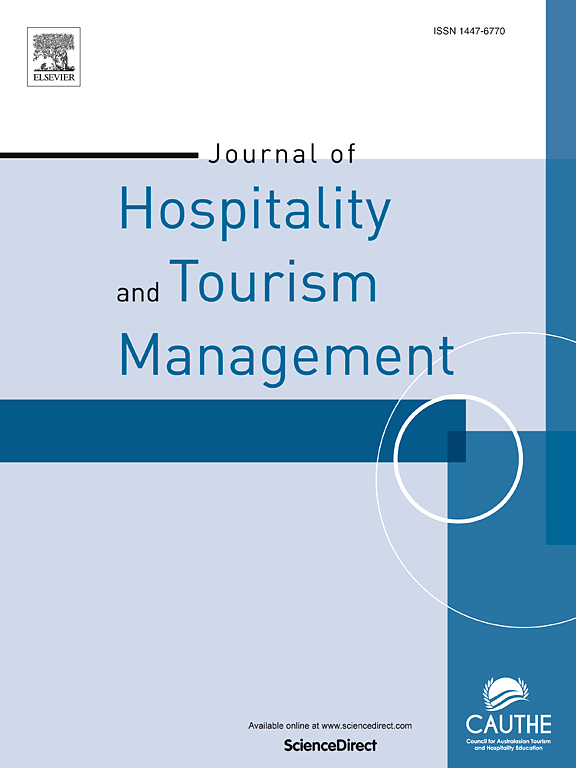The self-distancing perspective of daily customer mistreatment and employee service behaviors
IF 7.6
1区 管理学
Q1 HOSPITALITY, LEISURE, SPORT & TOURISM
引用次数: 0
Abstract
Recent research has explored employees' functional and dysfunctional reactions to customer mistreatment, acknowledging the diverse impacts it can have. Drawing on self-distancing theory, this study offers a novel investigation into hospitality employees’ varied reactions to daily customer mistreatment and identifies the boundary conditions that influence these responses. Using an experience sampling method research design, we conducted a ten-day daily diary survey of 82 hotel employees. Our results reveal that when hospitality employees adopt a self-distanced perspective following daily customer mistreatment, they are more likely to engage in problem-solving pondering during the evening, which leads to enhanced next-day proactive customer service performance. In contrast, when they adopt a self-immersed perspective, they tend to engage in affective rumination during the evening, which increases next-day service sabotage. Additionally, daily coworker reframing strengthens the relationship between daily customer mistreatment and problem-solving pondering during the evening and enhances the mediating role of problem-solving pondering during the evening between daily customer mistreatment and next-day proactive customer service performance. Conversely, daily venting with coworkers reinforces the connection between daily customer mistreatment and affective rumination during the evening, and intensifies the mediating effect of affective rumination during the evening between daily customer mistreatment and next-day service sabotage.
日常顾客不当对待与员工服务行为的自我疏离视角
最近的研究探讨了员工对客户虐待的功能反应和功能失调反应,承认了它可能产生的各种影响。利用自我疏离理论,本研究对酒店员工对日常顾客虐待的不同反应进行了新颖的调查,并确定了影响这些反应的边界条件。采用经验抽样法研究设计,对82名酒店员工进行了为期10天的每日日记调查。我们的研究结果表明,当酒店员工在日常客户虐待后采取自我疏远的观点时,他们更有可能在晚上进行解决问题的思考,从而提高第二天的主动客户服务绩效。相反,当他们采用自我沉浸的观点时,他们倾向于在晚上进行情感反思,这增加了第二天的服务破坏。此外,日常同事重构强化了日常客户虐待与夜间解决问题思考之间的关系,并增强了夜间解决问题思考在日常客户虐待与次日主动客户服务绩效之间的中介作用。相反,与同事的日常发泄强化了日常客户虐待与晚上情感反刍之间的联系,并强化了晚上情感反刍在日常客户虐待与第二天服务破坏之间的中介作用。
本文章由计算机程序翻译,如有差异,请以英文原文为准。
求助全文
约1分钟内获得全文
求助全文
来源期刊
CiteScore
13.30
自引率
8.40%
发文量
177
审稿时长
45 days
期刊介绍:
Journal Name: Journal of Hospitality and Tourism Management
Affiliation: Official journal of CAUTHE (Council for Australasian Tourism and Hospitality Education Inc.)
Scope:
Broad range of topics including:
Tourism and travel management
Leisure and recreation studies
Emerging field of event management
Content:
Contains both theoretical and applied research papers
Encourages submission of results of collaborative research between academia and industry.

 求助内容:
求助内容: 应助结果提醒方式:
应助结果提醒方式:


